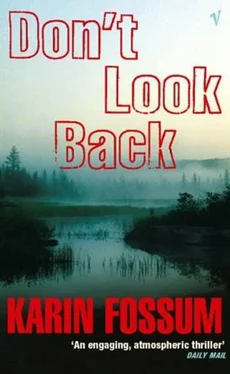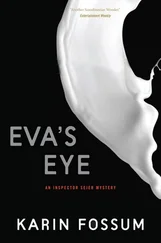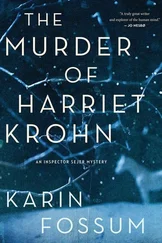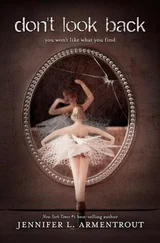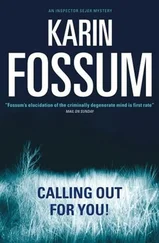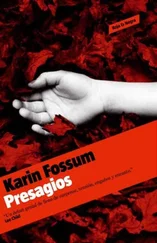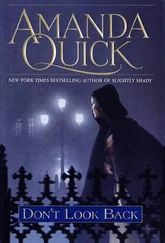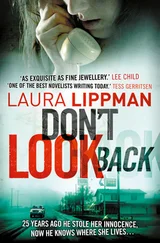Outside, the courtyard was dark and quiet. The entrance to the empty kennel gaped like an open, toothless mouth, but it wasn't visible from the road, and a thief might still think there was a dog inside. Behind the kennel stood the shed with a modest woodpile, his bicycle, an old black-and-white TV, and a pile of newspapers. He always forgot when there was a paper drive, and he didn't read the local paper any more. In the far corner, behind a foam mattress, lay Annie's school bag.
He had run out to Bruvann and back, thirteen kilometres. Had tried to stay below the pain threshold, at least on the home stretch. Elise used to pour an ice-cold Farris and hand it to him when he came out of the shower. Often he would have only a towel wrapped around his waist. Now no one stood waiting for him, except for his dog, who lifted his head expectantly when Sejer opened the door and let the steam out. He got dressed in the bathroom and then found a bottle for himself. He snapped off the bottle cap against the counter edge and put the beer to his lips. The doorbell rang as he was half-done with the bottle. Sejer's doorbell didn't ring very often, so he was a little taken aback. He raised an admonishing finger at the dog and went to open the door. Outside stood Skarre, by the railing, with one foot on the stairs, as if to indicate that he would retreat quickly if he had come at a bad time.
"I was in the neighbourhood," he said.
He looked different. His curls were gone, sheared off close to his scalp. His hair had acquired a darker sheen, making him look older. And his ears actually stuck out a bit.
"Nice haircut," Sejer said. "Come on in."
Kollberg came leaping, as he always did.
"He's a little overzealous," Sejer said. "But he's good-natured."
"He ought to be, at that size. He's like a wolf."
"He's supposed to look like a lion. That's what the chap who mixed the breeds and created the first Leonberger intended. He was from the town of Leonberg in Germany and wanted to create a town mascot."
"A lion?" Skarre studied the big animal and smiled. "No, I'm not that gullible."
Skarre took off his jacket and hung it in the hall. "Did you have a talk with Holland today?"
"I did. What have you been doing?"
"I visited Halvor's grandmother."
"Did you?"
"She served me coffee and lefse, along with all the misery of her old age. I now know what it's like to get old."
"What's it like?"
"A gradual decline. An insidious, almost unnotice-able process that you only discover at sudden, shocking moments."
Skarre sighed like an old man and shook his head anxiously.
"The cell division process decreases, that's what it's all about. It slows down more and more, until the cells practically stop renewing themselves altogether, and everything starts to shrink. In fact, that's the first stage of the decomposition process, and it starts when you're about 25."
"That's tough, all right. That means you're well on your way. I think you're actually looking a little older already."
Sejer led the way into the living room.
"The blood starts to stagnate in the veins. Nothing smells or tastes the way it should. Malnutrition also becomes apparent. It's not so strange that we die when we get old."
This made Sejer chuckle. Then he thought about his mother in the hospital and stopped.
"How old is she?"
"She's 83. And she's obviously not all there." He pointed to his own close-cropped head. "I think it would be better if we died a little earlier. Maybe at about the age of 70."
"I don't think many 70-year-olds would agree with you," Sejer said. "Do you want a Farris?"
"OK, thanks."
Skarre ran his hand over his head, as if to check to see if the new haircut was real.
"You certainly have a lot of CDs, Konrad." He was staring at the shelf next to the stereo. "Have you counted them?"
"Approximately 500," Sejer shouted from the kitchen.
Skarre jumped up from his chair to study the titles. Like most people, he thought that musical taste said a lot about who a person was, deep inside.
"Laila Dalseth. Etta James. Billie Holiday. Edith Piaf. My God," he stared with astonishment, smiling. "They're all women!" he exclaimed.
"Is that right?"
Sejer poured the Farris.
"All women, Konrad! Eartha Kitt. Lill Lindfors. Monica Zetterlund – who's that?"
"One of the best. But you're too young to know that."
Skarre sat back down, drank his Farris, and wiped the bottom of his glass on his pants leg. "What did Holland say?"
Sejer pulled his tobacco pouch out from under the newspaper and opened it. He took out a paper and began to roll a cigarette.
"Jesus!" exclaimed Skarre in surprise. "You smoke!"
"Only one a day, in the evening. He told me that Annie knew that Jensvoll had been in prison. Maybe she knew why."
"Go on."
"And one of the children she often baby-sat for died in an accident."
Skarre fumbled for his own cigarettes.
"It happened in November, at about the same time everything got so difficult. Annie didn't want to go over there any more. She refused to take them flowers, she wouldn't go to the funeral, and she didn't want to baby-sit any more. Holland didn't think it was strange, since she was only 14, and wasn't old enough to handle death."
He looked at Skarre as he talked and noticed how his expression grew more alert. "After that she left the handball team, temporarily broke up with Halvor, and withdrew into herself. So it happened in that order. The child died. Annie withdrew from everyone around her."
Skarre lit a match and watched as Sejer licked the paper of the cigarette he had rolled.
"The child's death was apparently a tragic accident – the boy was only two – and I can understand why a teenager would be shaken by that kind of experience. She knew him well. And she knew his parents. But…"
He stopped to light up.
"So that's the reason for the change in her?"
"Possibly. But she also had cancer. Even though she may not have known about it herself, it could have changed her. But I was hoping to find something else. Something we could use."
"What about Jensvoll?"
"I have a hard time believing that a man would commit murder just to guarantee silence about a rape that took place eleven years ago, and which he's done time for. Unless it's a matter of his having tried it again. And the whole thing went wrong… Do you have time to take a drive?"
"Of course. Where are we going?"
"To Lundeby Church." He took a deep drag on his cigarette and held it for a long time.
"Why there?"
"I'm not sure. I like to snoop around; that's the only reason."
"Maybe you think better out of doors?" Skarre scraped at a patch of candle wax on the sandblasted table.
"I've always thought that a person's surroundings affected how they think, that you understand more about something if you go to the actual scene. If you have a sort of awareness inside, an awareness of objects. For 'what objects have to say'."
"Fascinating theory," Skarre said. "Do you dare mention it out loud at headquarters?"
"We have a kind of silent agreement not to. The district prosecutor isn't interested in my beliefs. He knows they're there, of course, and he does take them into consideration, though he would never admit it. Another silent agreement."
Sejer exhaled the smoke reverently and looked up.
"What else did Halvor's grandmother give you? Aside from the lefse and a lecture on decay?"
"She told me a lot about Halvor's father. About how terribly nice he was as a boy. And how he was an unhappy man."
"I believe it. Since he was capable of beating his own children."
"And she says that Halvor has been holed up in his room. He apparently sits in front of his PC all evening and sometimes well into the night."
Читать дальше
